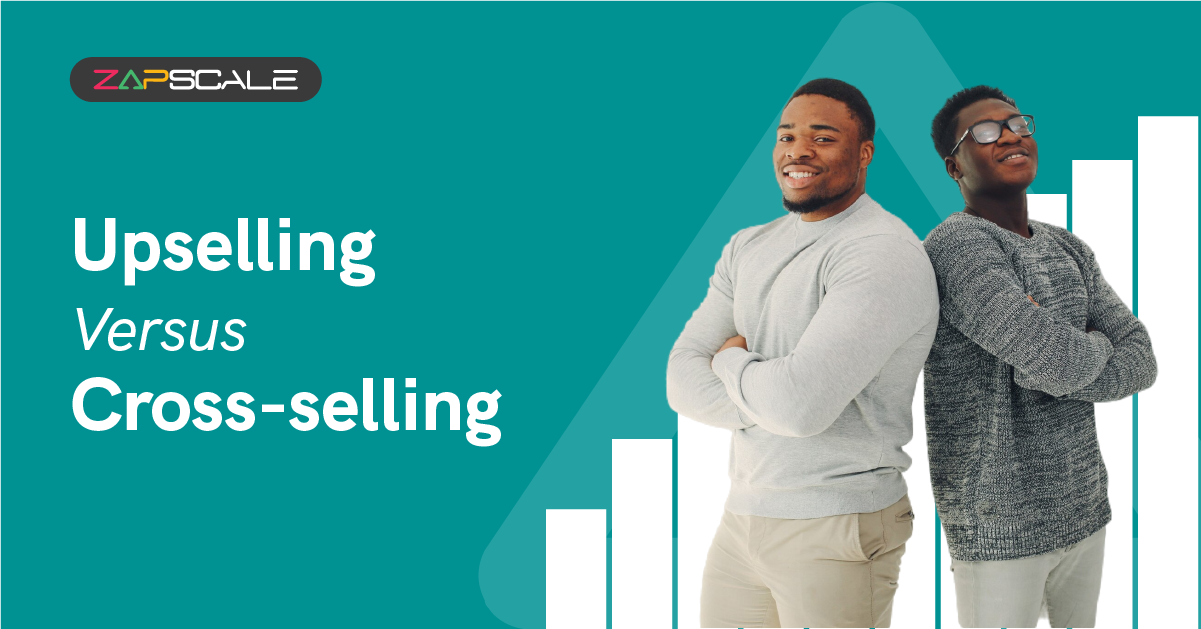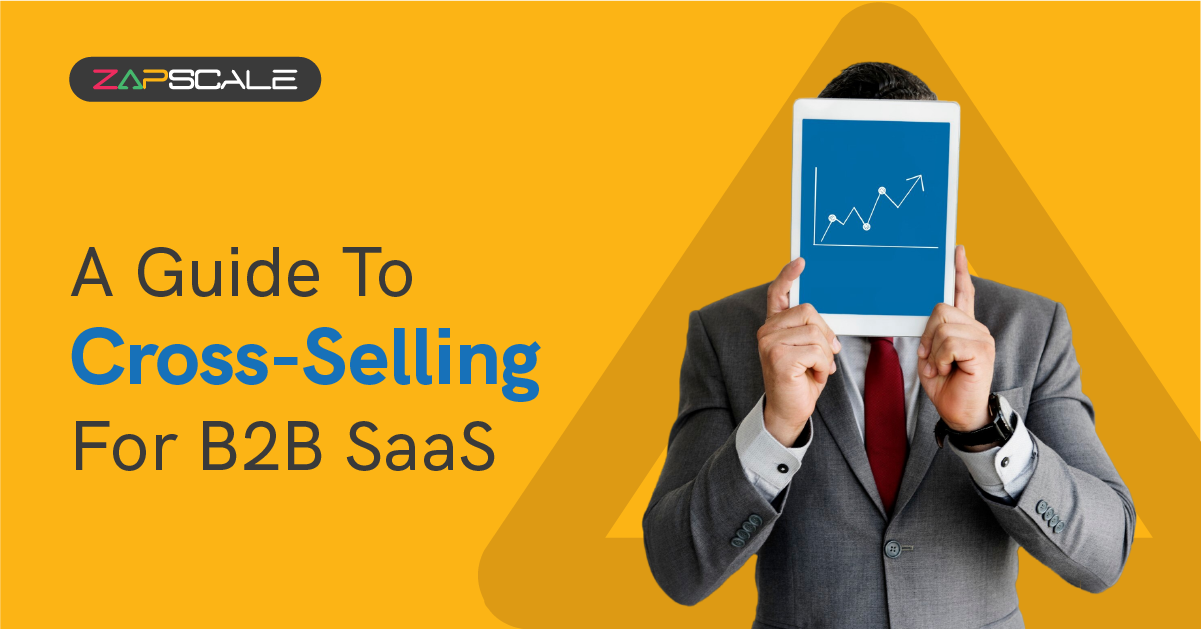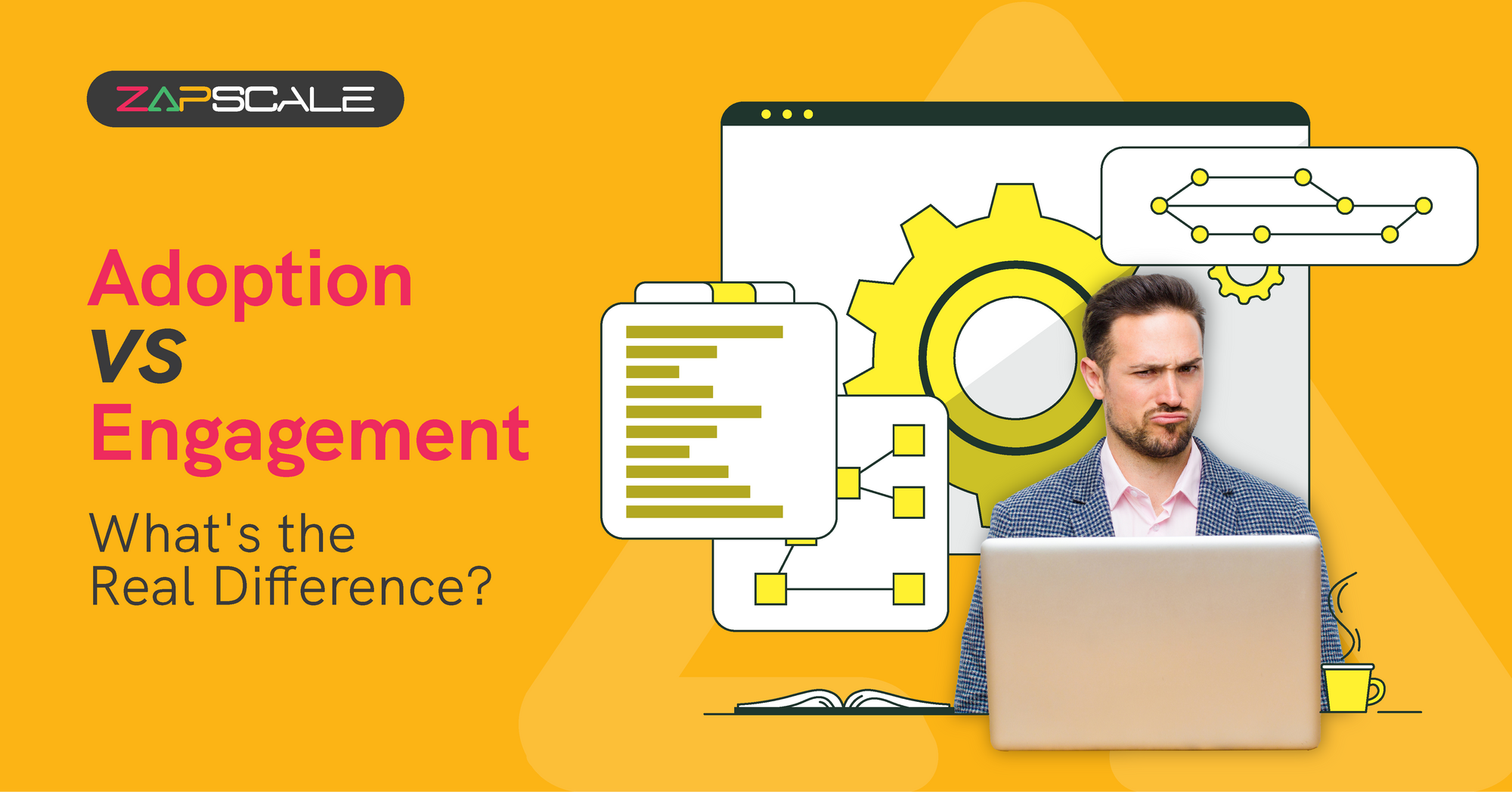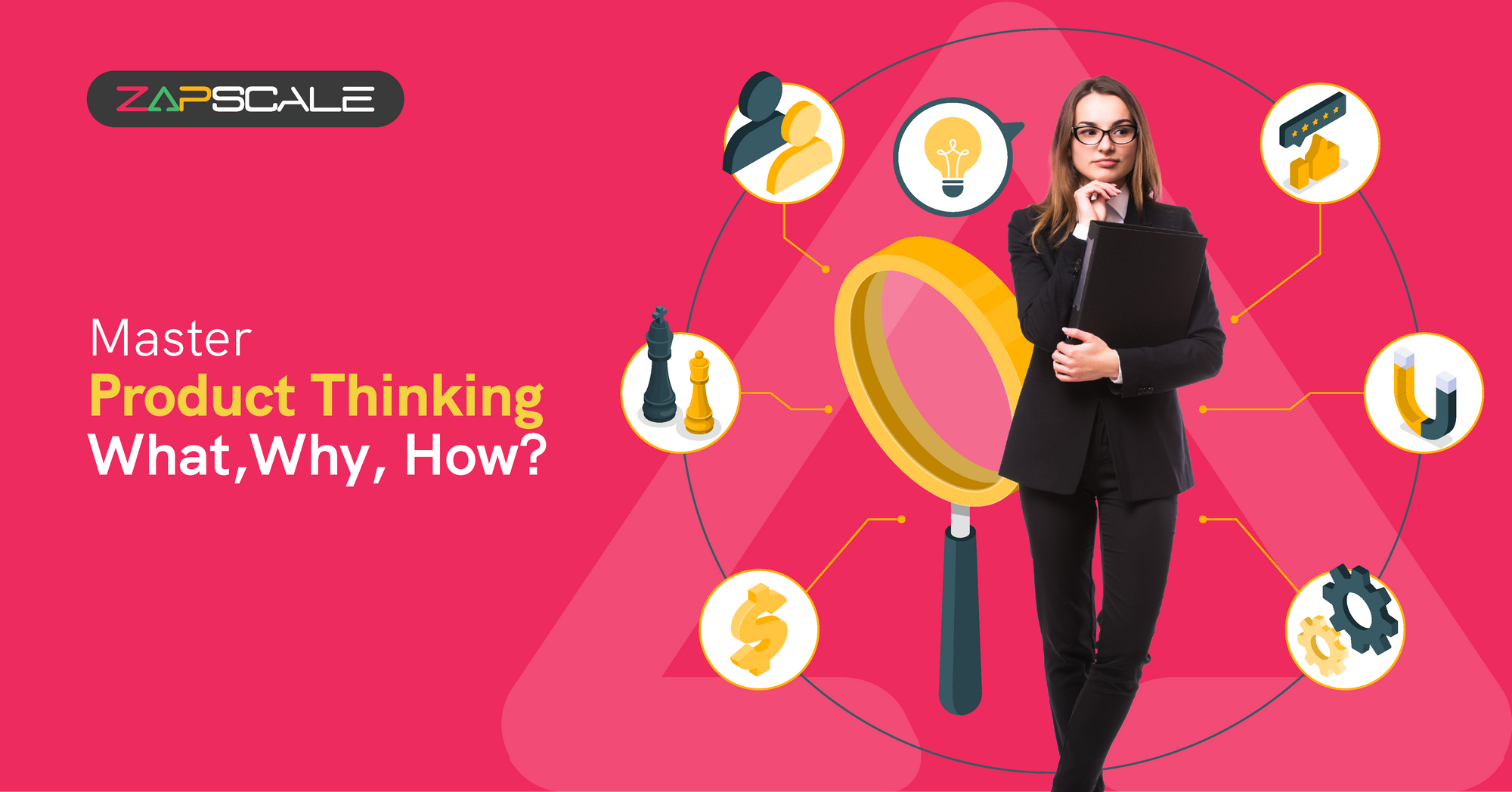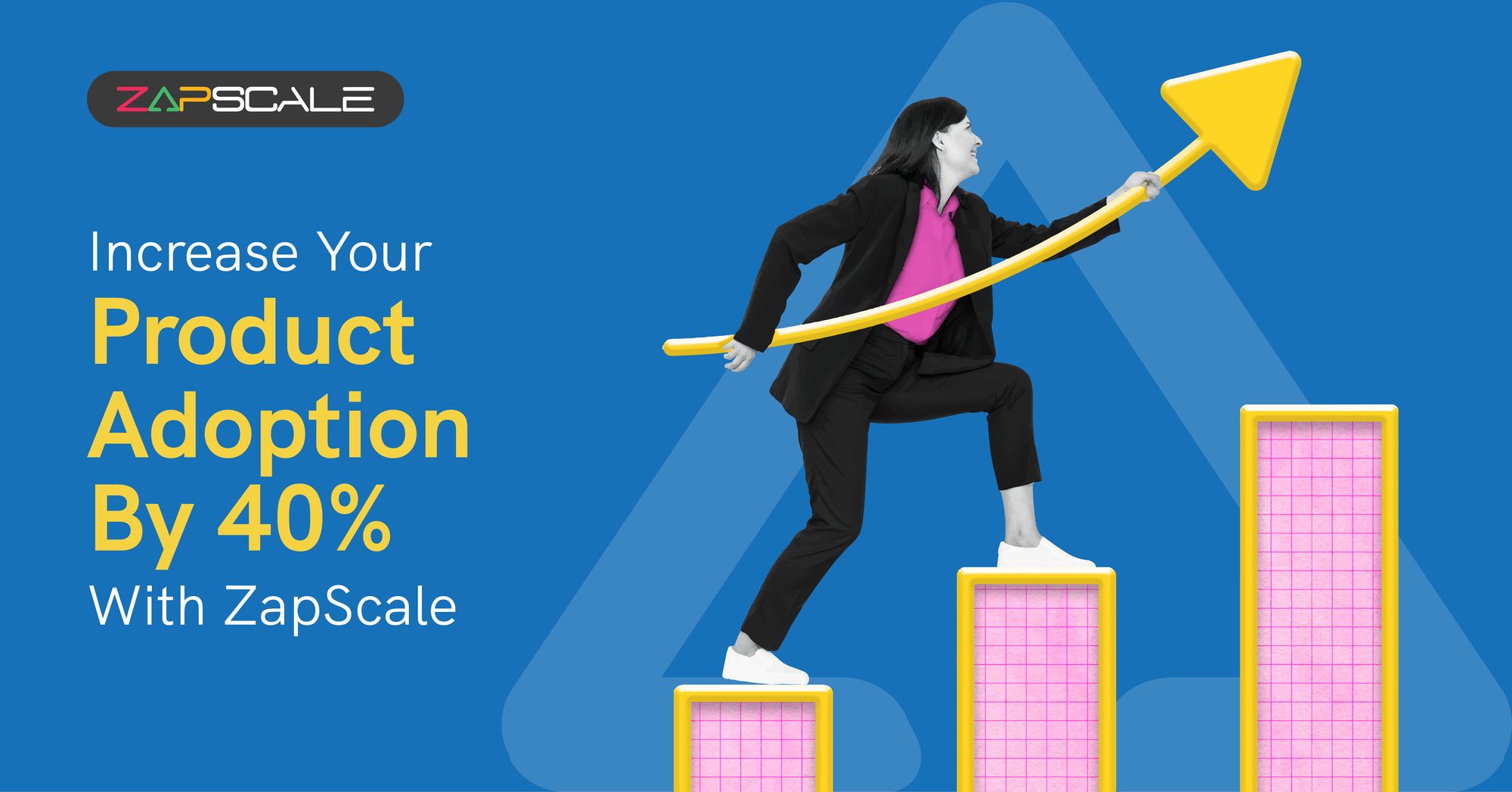CATEGORY > Customer Expansion
The Ultimate Guide to Upselling For SaaS
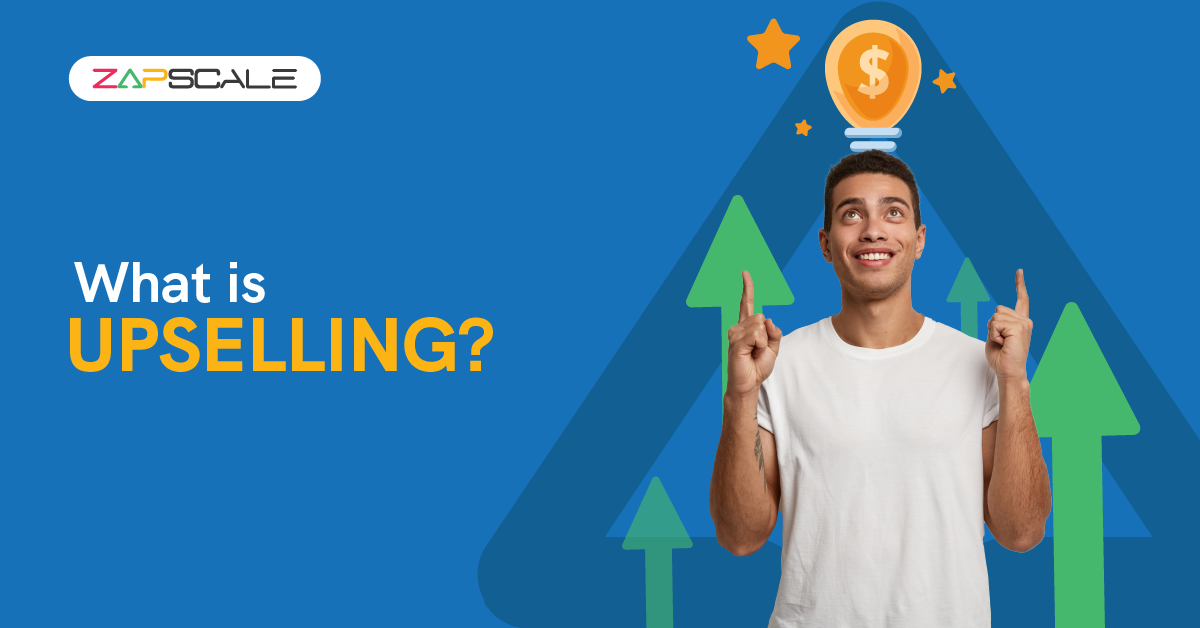
We all know how difficult it is to get new customers, that’s why companies concentrate on increasing their revenue from current ones.
This is leveraged by upselling, a crucial tactic in business expansion, which offers enhanced products to boost revenue and customer happiness.
Learn more about this gainful technique by reading further.
Upselling - An Overview
Upselling involves persuading customers to buy a pricier or high-end version of a product, boosting sales.
The reason most businesses prefer upselling to previous customers over acquiring new ones is that it’s far easier to sell products/services to individuals already familiar with the brand.
Upon that, it's cost-effective as finding new customers incurs CAC (Customer Acquisition Cost) and takes a lot of time.
For instance, you visit a fast-food restaurant to order a burger that costs $5. The cashier suggests getting a meal upgrade with fries and a drink, making it $10 in total.
That’s the power of Upselling!
You pay more and you get something much better in return.
Upselling isn't about pushing pricey products, it's about offering upgrades that meet customer demands effectively.
Optimal Sales - The Art And Science Of Upselling
Upselling involves recognizing customer needs, giving relevant solutions, and emphasizing the value of the upsell. Businesses can use data analytics and customer insights to find upselling possibilities and adjust their approach accordingly to enhance effectiveness.
Through strategic communication and personalized recommendations, salespeople encourage customers to make informed purchasing decisions that benefit both parties.
What does the entire process of Upselling look like? Let’s find out below.
1. Understand Customer Prerequisites
To begin upselling efficiently, it is critical to completely understand what clients have previously purchased and what they prefer. This allows you to personalize upselling suggestions to your customer's preferences and needs, making the process more effective.
2. Identify Opportunities
Businesses can identify areas where customers may be inclined to upgrade or expand their purchase by examining previous behavior and purchasing trends. Use data analytics and customer profiling to uncover opportunities for upselling. This helps to tailor upselling offers to each customer's preferences, increasing the likelihood of a successful upsell.
3. Incorporate Personalization
Since now you have a fair idea of what your customer base fancies, it’s time to fine-tune your upsell suggestions to match each customer's unique tastes and buying patterns.
Craft product or service recommendations that resonate with their interests. This personalized approach ensures relevance and increases the likelihood of an effective upsell.
4. Address Concerns
In this critical stage, you must anticipate and respond to any concerns or queries the customer may have about the upselling offer.
The aim is to be proactive and upfront, so that customers get a conviction in your upsell offer so that they feel informed and comfortable with their decision.
5. Highlight Value
Explain the benefits and increased value of the upsell, highlighting features and upgrades.
Upselling - The 4 Stages For Sales Success
As discussed above, Upselling involves both art and science while going beyond guesswork.
4 stages signify successful upsells and customer satisfaction.
Learn more about them by reading below.
Stage 1. Discover
Initially, we gain a thorough understanding of our customers' interests and records. By evaluating data, we may adapt upsell recommendations to their specific needs, increasing the odds of success.
Begin by understanding their demands through buying patterns, usage, and issues. This insight directs focused upgrades, closing critical gaps.
Stage 2. Offer
Provide improved or complementary offerings that enhance the customer's experience effortlessly. Deliver curated solutions for adding value, addressing pain areas, increasing efficiency, and providing advanced functionality.
Tailored messaging prioritizes value over cost, addressing unique difficulties across industries and corporate sizes.
Stage 3. Address
After making an offer to your customers, the next thing you must do is stay prepared for potential questions. Address their concerns transparently to build trust in the upgrade's value.
Be ready to demonstrate that the advantages outweigh the expenses, using real-world examples and testimonials to boost credibility.
Stage 4. Close
In the final stage, turn interest into action by emphasizing how the upsell increases satisfaction. Highlight the positives, provide accurate information, and enable a smooth transition.
After the upsell, prioritize exceptional service to ensure long-term customer pleasure.
Top 5 Inspiring Examples To Look For
Not all products or services call for upselling and can provide optimal value to customers. Here are some examples that will fit your upselling strategy like a glove.
1. Software Solutions
Upselling is a strategy used by software companies to offer customers upgraded versions with more features, functions, or user capacity.
For instance, offering access to a basic customer service ticketing system and upselling to a package that includes live chat, a knowledge base, and customer feedback surveys.
2. Tech Gadgets
In tech, upselling happens when customers are persuaded to purchase accessories, peripherals, or complementary products in addition to their original purchase.
For example, when purchasing a smartphone, staff may recommend accessories such as cases and headphones, which increases usability and sales potential.
3. Education
Upselling in the education industry frequently entails providing more educational resources, supplementary materials, or premium course packages to students. For instance, an online learning platform may offer premium course packages, extra resources, and enhanced learning opportunities like live tutoring and certifications.
4. Telecommunications
Telecommunications firms commonly use upselling strategies to get clients to upgrade their service plans or add new features to their current plans. Cell phone providers upsell to higher-tier data plans that include more data, better speeds, and additional features, increasing revenue and customer happiness.
5. Financial Products
Upselling in finance refers to providing additional financial services, insurance, investments, or credit card features after the first purchase or sign-up. Banks, for example, upsell to premium accounts with more interest, cheaper fees, and additional amenities, increasing revenue and customer value.
Upselling Strategy - The Pros & Cons Of Revenue Boost
Let’s learn a bit about the benefits and drawbacks associated with Upselling.
Pros
1. Revenue Boost
Upselling can increase overall sales revenue by convincing customers to buy more products or services in addition to their first purchase.
2. Enhanced Customer Value
By suggesting relevant upgrades or complementary items, businesses can offer customers a valuable shopping experience and encourage them to repeat purchases.
3. Greater Customer satisfaction
Personalized upsell suggestions cater to customer demands, increasing happiness and retention through tailored recommendations.
Cons
1. Risk Of Customer Exhaustion
Overwhelming upsells can frustrate customers, leading to disinterest, potential loss, and a poor buying experience.
2. Potential Resistance
Aggressive upselling can alienate customers, leading to negative brand perceptions and damaged relationships.
3. Ethical Concerns
The biggest ethical consideration in upselling is ensuring that recommendations are truly useful to the customer and not motivated merely by commercial motives.
Unlocking Growth: Cross-Selling Excellence In B2B SaaS
Cross-selling supplement purchases by providing relevant extra products, whereas Upselling encourages customers to select higher-priced options that align with their preferences.
Both techniques aim to maximize sales potential.
For example, suggesting a laptop bag with a laptop purchase improves convenience and boosts revenue for retailers.
By demonstrating how your products meet more customer demands, you may strengthen relationships and generate repeat business.
From "Maybe" to "Yes: 5 Proven Techniques/Tactics/Tips for Upselling Excellence
There are numerous ways to upsell effectively, a few of them are listed below.
1. Understand your Customer
Gauge your customer by asking open-ended questions about their goals and issues. Suggest upgrades that directly address their concerns, making the upsell natural and valuable.
2. Choosing The Right Moment
In upsell, timing is everything as it increases your chances of getting a positive response. Wait for the right moment to upsell - after customers show interest or discuss limitations.
3. Offer StraightForward Choices
Don't overwhelm customers with too many alternatives or confusing details. Present the upsell in an easy-to-understand manner that is consistent with their tastes and needs, allowing for a quicker decision-making process.
4. Embrace Free Trials
Give customers a hands-on experience of your product or service to understand the real value of your offering. Ensure the trial period is enough for them to completely comprehend the value and benefits.
5. Sweeten The Deal
Encourage upsells by discounts, bundled pricing, or free add-ons. Bundling with complementary items adds value and makes the offer appealing, increasing sales and satisfaction.
FAQs
Q1. How can companies decide when to provide an upsell?
Answer: Businesses can identify upsell chances by monitoring customer indicators such as curiosity or related discussions to ensure the best timing for additional offerings.
Q2. What typical mistakes should one avoid while trying to upsell?
Answer: Avoid overloading customers with too many upsell offers or promoting things they do not require.
Q3. How does customer data fit into successful upselling tactics?
Answer: Customer data guides upselling by providing insights into history and preferences, allowing for more targeted offers and improved success rates.
ABOUT THE AUTHOR
Sonali is a social media enthusiast and creative content writer with 3+ years of experience. With a passion for storytelling, Sonali delivers content that inspires, informs, and captivate readers.
Popular from Customer Expansion
Quality Content,
Straight To Your Inbox!
Subscribe for the latest blogs, podcasts, webinars, and events!

Write a Blog
If you have experience in CS and
a flair for writing, we’d love to
feature you.
Write to us on
hello@zapscale.com